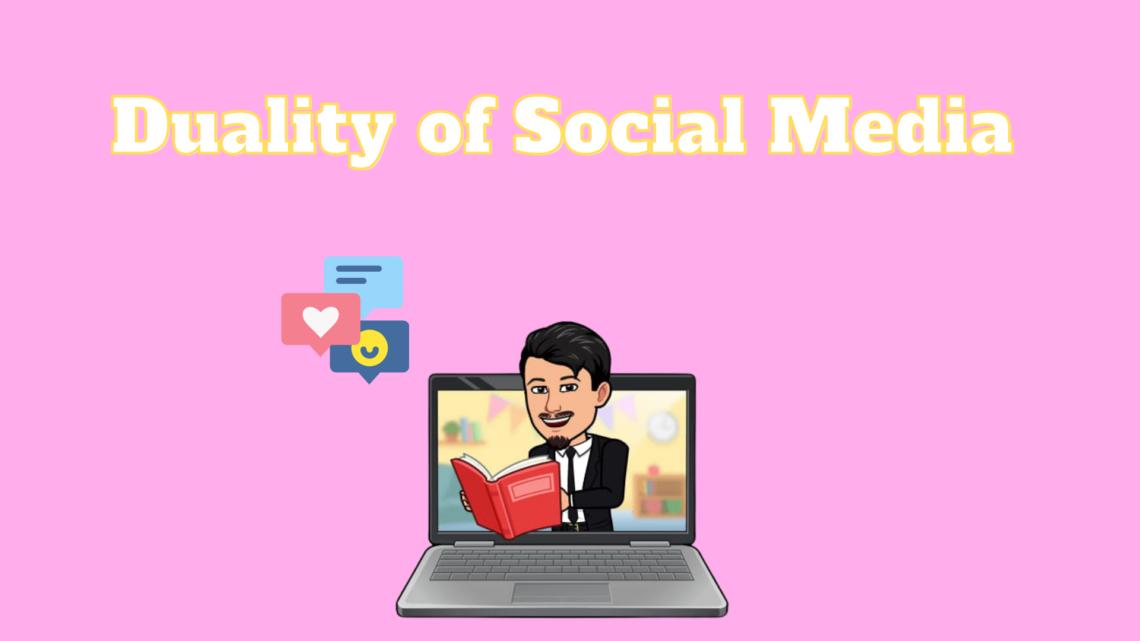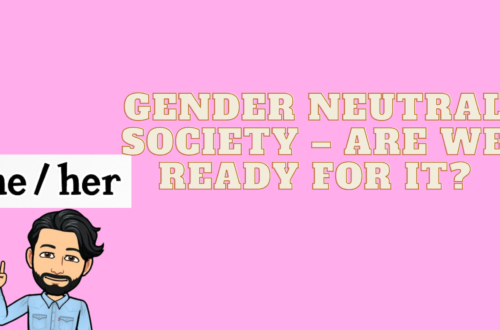
Duality of Social Media.
Duality is the state of having two different opposite concepts of something. They are often used to describe a mathematical theorem, a property in physics, or maybe a person. To discuss the duality of social media, first, let’s begin by understanding the concept of social media.
When you hear about social media, you think of sites like Instagram, Twitter, Facebook, or WhatsApp. Anything we use to communicate, collaborate, express, and interact, but it does more than that. Social media is a form of transmission which allows users to create online communities and share information, ideas, personal views, and other content. So, in a way, you can say that this article is also a part/type of social media. Social media and marketing experts agree that there are 13 types of social media. It includes social media sites like YouTube, Huffington Post, Quora, LinkedIn, Microsoft Teams, and Wikipedia, and it’s ever-evolving.
Now, let’s talk about the duality of social media. Suppose you are an extrovert or transparent and understand the ins and outs of social media. In that case, you might develop a positive relationship. At the same time, if you are an introvert or lack emotional stability, you might create a negative association with it. Some other factors affect your relationship with social media as well.
Technology nearly runs hand in hand with social media. One can argue that it has made lives and work easier by being able to communicate with someone virtually in a few seconds. Another can say that it distributes content without any limit or filter and can take a toll on a person’s mental health, especially on a teen or a kid.
Social media sites like Zoom, Meet, and WhatsApp have made it incredibly easy to connect and communicate with anyone virtually. Especially during the pandemic, these companies have seen massive user growth. While it is nice to know the well-being of family, friends, and co-workers, it has also become tough to communicate and interact with a person in the real world. It leads to mental health problems like anxiety, confusion, stress, and losing touch with reality.
Doom-scrolling! People used to utilize a quick break from work or class or a household chore by taking a nap, snack, or a drink. Now, they take off their eyes for 3 seconds from work. The next thing they are doom-scrolling through social media, switching from one platform to another. They might have subconsciously reached home from the office, yet consciously still on the internet. Memes, articles, and warnings have been made and shared on social media, using social media sites, doom-scrolling, and increased screentime.
Nevertheless, repeat, reuse, and re-install have become a trend. A general example of the duality of social media can be seen through Netflix. The huge streaming platform offers a variety of movies, shows, and games to categorize and choose from different genres and languages. Suppose there is a new exciting show trending on multiple social media sites. In that case, the first place a user might think of searching for is Netflix. On the other hand, the ‘Netflix Dilemma’. Netflix can be overwhelming at times, especially when you can’t decide what to watch because there are too many options or you are in a Netflix watchlist slump. There is too less time to watch it all. You keep scrolling and searching through Netflix and checking online reviews to narrow it down. Before you know it, the window of time you choose to watch is over, often referred to as the ‘Netflix Dilemma’.
Social media influencers play an important role as well. Who are social media influencers? They are the better social media users who know the ins and outs of social media sites and learn to earn money, gain popularity and enjoy a few perks. Influencers promote various brands, products, services, and even ideas, by always keeping the audience entertained and engaged. The smart ones know where the profit lies, and the wise ones know where growth lies. While one part of the influencers raises awareness on issues, the other part is known to spread misinformation while being creative enough.
While large companies are still using traditional marketing methods and are slowly adapting, smaller companies are successful in social media marketing. Social media strategy, something managers, PR teams, and organizations of politicians, entertainers, and businesses are familiar with, plays a vital role in social media marketing. It targets a specific set of audiences based on their age, gender, region, ethnicity, etc., suitable for these companies. Because it increases the demand for a product or service, improves customer interactions, and improves feedback. It is also a good thing for users as they don’t have to spend hours online to get one good product meeting all their requirements. Everything is analyzed and planned, from celebrity endorsements and product launches to political campaigns as to when and what elements to advertise on social media sites. For organizations, social media marketing strategies could turn into a crisis quickly, resulting in a backlash if users don’t like an ad campaign or a collab. For users, it can be stressful choosing a product, service, or ideology due to the availability of too many options or unsatisfactory experiences from a trusted party.
A different approach to social media marketing is measuring and tracking user reach using social searcher tools. It involves collecting the user data for advertising and analyzing user content based on the user’s search info, history, and personal details. And they are sending them a sometimes-repetitive popup or a notification of what they should get in the future. The same idea that Netflix’s documentary ‘The Social Dilemma’ discusses. If not careful, how a user could become the product and how algorithms lead to addiction by manipulating and influencing user data. The duality of social media can be scary and creepy. Still, as long as the user takes control of their mind and tries not to lose touch with reality, they can have a safer virtual experience.
Now. we know the true face of social media but social media is the reflection of people’s behavior and thinking. Check out the unfiltered nature of the audience.


You May Also Like

The Next Big Thing for the Indian Writing Community.
June 4, 2022
Being a Writer in India.
July 19, 2022